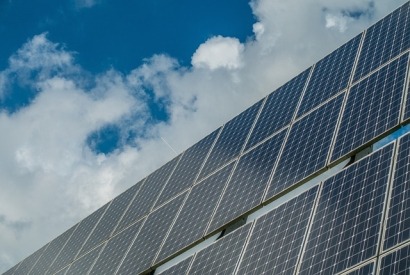
Critics point to intermittency and storage, while proponents highlight recent technological advancements and successes in integrating these sources into the grid. This discourse is pivotal as people navigate toward sustainable energy solutions that can support their future without compromising reliability.
The State of Renewable Energy Today
Renewable energy technologies have made significant strides in recent years, generating over 21% of all U.S. electricity — a testament to their growing role in the nation’s energy mix. These technologies have seen remarkable advancements — including more efficient solar panels, taller wind turbines capable of capturing stronger winds and improved hydroelectric systems, all of which enhance efficiency and reliability.
Despite these gains, renewables still face challenges, particularly in variability and storage, with the need for innovative solutions to store energy during peak production periods for use during low production times. These hurdles underscore the ongoing need for renewable energy technology and infrastructure development.
Benefits of Renewable Energy
The shift toward renewable energy sources offers profound environmental benefits. For instance, switching to an Energy-Star water heater is equivalent to the impact of not driving a car for four years. This approach substantially reduces water usage and greenhouse gas emissions compared to traditional fossil fuels.
Beyond environmental gains, renewable energy presents substantial economic advantages. It includes creating jobs in the fast-growing green technology sector, energy price stability due to the reduced costs of wind and solar power over time and decreased dependence on imported fuels.
The societal impacts of increasing renewable energy usage are equally compelling, ranging from health benefits due to less air pollution to promoting energy equity and accessibility. It ensures clean, reliable energy is available to more communities worldwide.
Overcoming the Intermittency Challenge
Energy storage systems — like battery storage, pumped hydro storage and thermal storage — and advanced grid management technologies are crucial to address renewable energy’s intermittency. These solutions help prevent costly outages, such as those in data centers, which can cost over $740,000 on average. Moreover, they smooth out the supply of power from renewables, which can vary with weather conditions and time of day.
The advent of smart grids has been transformative, enabling more sophisticated energy distribution and management. These grids facilitate the integration of renewable sources into the existing grid by using technology to predict energy supply and demand. This integration supports continuous power delivery and reduces reliance on non-renewable energy sources. It marks a significant step in the journey toward a sustainable future.
Bridging the Gap to 24/7 Renewable Energy
The future of renewable energy is bright, with emerging technologies and innovations that can enhance its reliability and efficiency. Experts predict a notable surge in global solar generation, doubling to 6% by 2024 from 3% in 2022 due to advancements such as bifacial solar panels and floating solar farms.
This expansion is part of a broader trend toward increased reliance on renewable energy. This approach reflects its growing role in the global energy mix and its crucial impact on promoting sustainability and reducing carbon emissions.
Innovations — like improved energy storage solutions and advancements in grid management and smart grid technologies — unlock renewables' full potential, ensuring they can meet demand reliably and sustainably.
Driving the Future of Renewable Energy
Energy professionals must engage with the latest developments in renewable energy to contribute their expertise and innovation to fuel its growth. Their support for policies and practices that favor renewable energy expansion steers the global community toward a more sustainable and resilient energy future.

